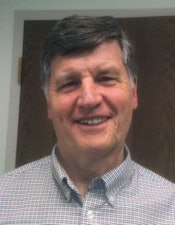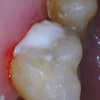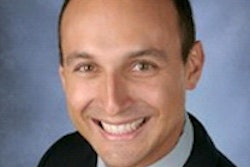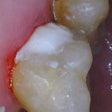
More than 100 dentists, physicians, and healthcare experts in Washington gathered in Seattle this week to collaborate on ways to improve that state's oral health. The Oral Health for Washington Symposium came as the state health department acknowledged oral health's connection to overall health.
 Bob Crittenden, MD, senior health policy advisor to Gov. Jay Inslee. All images courtesy of Dr. Crittenden, Oral Health America.
Bob Crittenden, MD, senior health policy advisor to Gov. Jay Inslee. All images courtesy of Dr. Crittenden, Oral Health America."Oral health is one of those important building blocks," Bob Crittenden, MD, senior health policy advisor to Gov. Jay Inslee, told the group. "It's time to stop separating the mouth from the rest of the body. If we want to keep people healthy, oral health needs to be addressed."
Healthcare providers, state and local health leaders, and social service agencies discussed possible solutions, including community water fluoridation, sealants, oral health literacy, and improved collaboration.
Integration of dental and medical care
Healthcare needs to be restructured, Dr. Crittenden told DrBicuspid.com, especially integrating oral health in treating patients. During his 40 years as a family practitioner and working with the poor, Dr. Crittenden has done numerous surveys asking low-income people what they think is their most important medical problem.
"Dental care is always No. 1," he said. "The problem is always they can't afford it."
“When you're a low-income person and you have rotten teeth, the most important thing for your livelihood and pain is to have your teeth restored enough so you look halfway decent.”
And one of the biggest impacts of poor oral health is how it affects someone's ability to get a job.
"People with rotten teeth don't get hired," Dr. Crittenden noted. "When you're a low-income person and you have rotten teeth, the most important thing for your livelihood and pain is to have your teeth restored enough so you look halfway decent."
The simple solution, he said, is providing enough coverage to ensure that people get needed care. Washington has expanded its dental Medicaid program, which now includes 2 million adults.
"But we still don't pay much, so a lot of dentists won't take such patients because of low reimbursements, but at least we have people covered," said Dr. Crittenden, adding that such coverage is limited.
Oral care for the aging
Another meeting participant, Beth Truett, president and CEO of Oral Health America (OHA), focused on the oral health of older adults, noting that 92% of people older than 65 are not in nursing homes.
 Beth Truett, president & CEO of Oral Health America.
Beth Truett, president & CEO of Oral Health America."It's been recognized by dentists as an acute issue," she told DrBicuspid.com. "The issue is more underground when you get into the community area, which includes unpaid and paid caregivers."
The OHA has set up a website (toothwisdom.org) that provides health resources for older adults and is piloting a course to be delivered in community settings called Tooth Wisdom, Get Smart About Your Mouth. The Washington Dental Service Foundation (WDSF) has also developed a course to help dentists who have not worked with older adults to understand how they can care for these patients.
Truett noted that many adults are resorting to hospital emergency rooms (ER) to seek treatment for oral problems. She recalled working in a Chicago care facility that served dinners for the homeless.
"Many were in such pain they act couldn't eat," Truett said. "I actually sent them to the ER at Northwestern; I just didn't know any better. One of the things that happens is that people who are well-meaning, they're directing people, particularly low-income, to the ER because word on the street is that it's someplace you can go and be seen. But it's only palliative; there's no alleviation of the problem in terms of treatment."
Community fluoridation, school-based sealant programs
Caries continues to be a major problem in Washington, health officials noted. It is the most common chronic childhood disease in the state and mostly affects low-income and ethnic minority children.
Only 63% of Washington's population has fluoridated water, according to Dr. Crittenden.
"People have health fears about it," he said, noting the state also has a sizable antivaccination group. "People don't trust the government despite 70 years of experience showing that [fluoridated water] works well in preventing caries."
He also cited the importance of school-based sealant programs. Dr. Crittenden set up a program in which pediatric dental residents were trained to examine children to check for early signs of demineralization and caries, as well as apply fluoride varnishes.
"There's good evidence that such programs can decrease caries by 60%," he said. He credited the WDSF, funded by Delta Dental, for doing outreach to encourage more dentists to treat children.
"When we started 10 years ago, we literally couldn't find a dentist who would treat kids under 4 or 5 other than pediatric dentists who were too busy to see poor kids," Dr. Crittenden said. The foundation started the Access to Baby and Child Dentistry (ABCD) program, which recruited more dentists to treat youngsters, he said.
The state health department and the WDSF hosted the Seattle meeting, the first of two oral health symposia. The other meeting will be in Spokane on April 30 and is also sponsored by the Empire Health Foundation.



















